

Mostarian Current
Student Journalism Is Making A Comeback
IN THIS ISSUE
HowMUNPromotes Understandingand Collaboration
Back in 2007, UWC Mostar organised the first MUN in Bosnia and Herzegovina, and since then organizing a MUN conference has become a tradition in our school... continuedonpage1
Police brutality in Italy
Italian contemporary history is not estranged from the phenomenon of police brutality and abuse of power employed by armed forces on civilians While its role is not major in the eyes of the average citizen, it is one of the frontline political issues affecting the country continued on page 6
On doing more things
I’m not good at
I barely ran the half marathon, and I am glad I did it
I wonder what made me sign up to run a half marathon, something so distant from my comfortable knowhow zone Even more, I’m not what you’d call a ‘fit’ person Throughout my first 5 years of middle school, I tried and changed 6 different sports continued on page 7
Bald for what cause?
The air was charged with emotion on Saturday, the 23rd of March 2024, as students from United World College in Mostar gathered in Velić Garden for a truly remarkable event: Bald for a Cause continued on page 10
It’s just another walk on page 3
Census and consensus on being Latino on page 4
Dear Readers,


The Mostarian Current editors are proud to announce the second printed edition of UWC Mostar’s student-led newspaper that is now in your hands. This term, we're bringing you an insight intoto the UWC Mostar life, through students' reflections and narratives, as well as opinions on global issues, and film and song reccommendations by Film and Newspaper CAS We hope that this edition will act as a creative concluding note to this eventful, yet wonderful academic year, while encouraging all readers to keep their inventive spirit active Enjoy!
-Anna C and DaniellaSUBMISSIONS:
The Countdown to Graduation 00, 143, 101, 89, 61 a sequence As I am sure Elmir would tell you, a sequence is a collection of values arranged in a particular order or abiding by a specific set of rules 200, 158, 109, 56 dare it be infinite? continued on page 2
Whispers of Wisdom: Embracing the Unexpected Virtues and Surprising Values of Gossip
When we think of gossip, we are quick to associate it with meanness, maliciousness or insolence “I don’t gossip” seems to be our favourite phrase continued on page 8
A Napping Culture
Many things are said about this beautiful dark twisted place better known as the United World College in Mostar We are the school of Kim Jong Un’s nephew and a very unique UWC in various aspects, including its truly open campus continued on page 2 Summer
Breaking Down Barriers: How MUN Promotes Understanding and Collaboration
Back in 2007, UWC Mostar organised the first MUN in Bosnia and Herzegovina, and since then organizing a MUN conference has become a tradition in our school
I have done MUN before, but the MUN conference in our school offers a completely unique experience The Model United Nations held in Mostar is different because besides rules of procedure, diplomatic language, and resolution writing, here you have to keep representing UWC values
When acting as a delegate for the country assigned to you, it is crucial to represent its interests effectively, but at the same time, you have to be mindful of not offending your country's rival nations You have to keep in mind that the nation you criticize could hold deep significance for a friend, colleague, or even a roommate who considers it their homeland, so your words or actions might unintentionally hurt someone's feelings
Moreover, the power dynamics in our school MUN context are totally different If in a typical Model United Nations you would debate with people you are most probably meeting for the first time in your life, here you may find yourself defeating your friend or even being a committee chair of your classmates, which makes everything more complicated
Moreover, the power dynamics in our school MUN context are totally different If in a typical Model United Nations you would debate with people you are most probably meeting for the first time in your life, here you may find yourself defeating your friend or even being a committee chair of your classmates, which makes everything more complicated.
On the other hand, due to our varied backgrounds in terms of cultures, languages, and belief systems, MUN serves as a bridge that brings together these diverse perspectives Taking on the position of a delegate representing your peer's nation allows you to experience things from their perspective, fostering empathy and understanding within our community
Also, MUN provides a safe space for us to engage in constructive dialogue and debate on complex global issues Through research, public speaking, and negotiation, we can learn to articulate our thoughts, listen to others, and work collaboratively toward finding common ground This collaborative approach not only enhances communication and critical thinking skills but also offers us a sense of mutual respect and cooperation, which, at the end of the day, makes our community stronger byIlaria
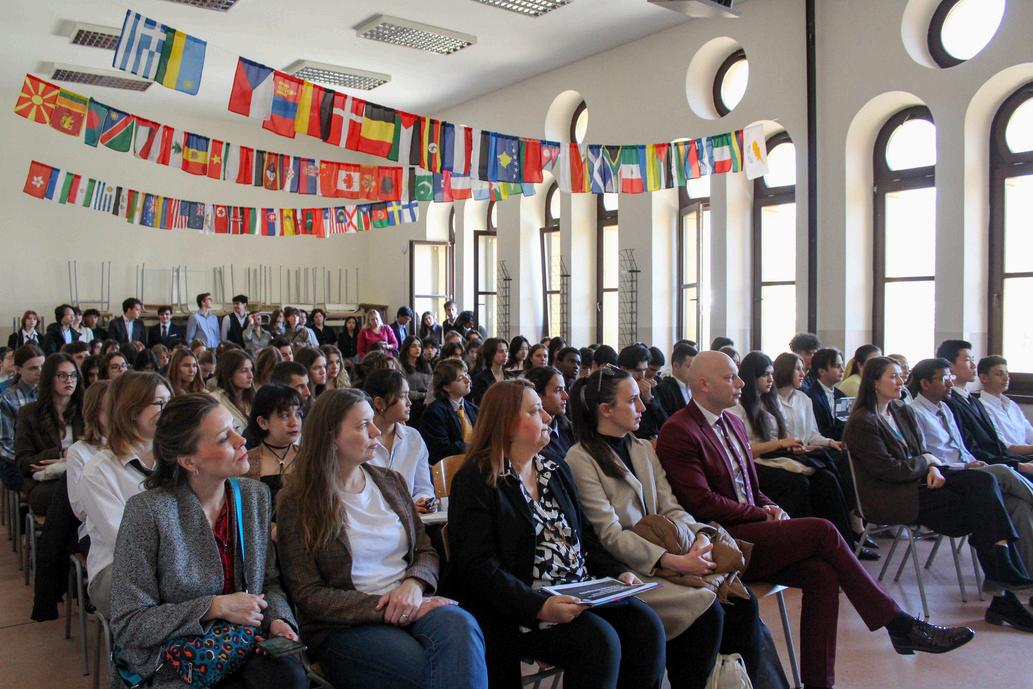
A Handmade Path to Freedom
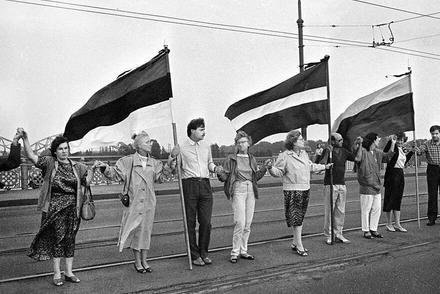
Ever since I was little, I was constantly surrounded by parades, rallies and demonstrations happening in our region Sometimes, exiting the house means running into a couple hundred people shouting some slogans on your way to school Protests are sadly, or fortunately, a big part of every Latvian’s life and it has been that way for years I remember being a kid and learning countless stories about similar events that happened before I was even born, but my personal favourite has always been The Baltic Way
The Baltic Way was the longest unbroken human chain in history, a peaceful protest that brought all 3 Baltic countries together But what was the reason for it? What had to happen in order to encourage almost two million people, which is more than the population of today’s Latvia itself, to come together and link hands, connecting all three Baltic capital cities?
In 1940, as per their prior agreement with Nazi Germany, the Soviet Union invaded the Baltic states The said deal was signed in Moscow on August 23, 1939, and it was supposed to be kept completely confidential Due to the surnames of the signatories, Vyacheslav Molotov of the USSR and Joachim von Ribbentrop of Germany, this agreement is sometimes called “the Hitler-Stalin Pact” or the “MolotovRibbentrop Pact” To put it plainly, this divided a part of Eastern Europe into areas of influence by the Soviet government, allowing The Communist Party to impose a dictatorship on the people of Baltic republics, restricting their freedom of expression and opinion While the occupation stayed in place, the USSR repeatedly insisted that the Baltic states had joined the Soviet Union voluntarily and denied the existence of the Pact The consequences of the said Molotov-Ribbentrop Pact were still very much felt in the Baltic states towards the end of the 1980s
At that time, recently established public organisations began to express their opinions and dissatisfaction with the current state of events more freely Yes, The Baltic Way was the Baltic states’ biggest and most significant movement to reclaim their independence, but it wasn’t the first For example, on June 14, 1986, Remembrance Day for the Victims of the 1941 Deportations was observed in Riga, by the Freedom Monument Subsequently, all of the Baltic states’ former political prisoners decided to have a united commemorative event on August 23 50 years after of the Pact was signed, citizens of the three Baltic states decided to demand the secret protocols of the Pact to be publicly acknowledged and their respective governments’ independence to be restored
Who came up with the concept for the Baltic Way? Nobody can be sure It is speculated that Edgar Savisaar, the leader of the Popular Front of Estonia at the time, was the one who first proposed it in Parnu The national movements of the Baltic states the Lithuanian Sajūdis, the Estonian Rahvarinne, and the Latvian Popular Front of Latvia were responsible for making that idea happen Organized with walkie-talkies in the absence of mobile phones, no one was certain anything would even work out. The Baltic people had already come together for numerous large-scale protests Would they be strong enough and willing to try one last time?
Furthermore, a single human could extend their arms to a distance of almost 1,5 metres Thus, in order to cover the 600 km from Vilnius to Rīga and on to Tallinn, at least 400,000 people must take this route That’s more than 100,000 adult individuals from each nation
All of that effort did not go to waste. On the August 23rd of 1989, The Baltic Way chain continued without any interruptions for almost 700 kilometres No violent incidents, no injuries, no harm caused And the turnout was far higher than anticipated Various reports range from one to two million participants; however, estimates closer to two million seem more likely Back then, it made up one-fourth of the whole population of the Baltic The participants either drove to the less populated Baltic lands, which the Baltic Way was to meander through, or assembled in the cities and villages where the campaign was to take place It was a simultaneous, three-nation proclamation of unseen freedom
As a result of this demonstration, the Soviet Union was forced to acknowledge the existence of the secret protocols and deem it invalid It also pushed the Baltic pro-independence movements to become more demanding They changed their strategy from pleading for having more freedom from Moscow to complete independence It was among the most significant moves the Baltics took to regain their freedom A famous quote, popularly attributed to Mikhail Gorbachev, speaking to his adviser Anatoly Chernyaev while watching a news report covering the Baltic Way, portrays the situation very well: Нам их не вернyть (“There’s no way we can win them back ”)
The Baltic Way demonstrated how the people of the Baltic states are united by their conviction in the values of democracy A strong sense of unity, solidarity, and shared purpose fostered by such a campaign played a significant role in the political engagement that resulted in the Baltic republics regaining their independence Later, in recognition of their value in documenting history, documents recording the Baltic Way were added to UNESCO’s Memory of the World Register in 2009 This outcome made The Baltic Way into a “role model” of peaceful protests, as it wasn’t just interesting to witness, it was also very effective without the use of any violence And in my opinion, it just goes to show how much power the people’s voice actually holds when it isn’t being restricted. Just as Dainis Īvāns, the first Chairman of the Popular Front of Latvia, said in his radio address at 7 pm on the 23rd of August 1989:
“Days and years will pass, many things will disappear and be forgotten This moment will remain forever ”
The Countdown to Graduation
200, 143, 101, 89, 61 a sequence As I am sure Elmir would tell you, a sequence is a collection of values arranged in a particular order or abiding by a specific set of rules 200, 158, 109, 56 dare it be infinite?
Finite, final, finals A flock of people on a platform ready to fly, fleeting feelings, tears flowing Fuck Another sequence The only rule is graduation, values arranged in a steadily decreasing order A cliché?
Why write poetry about a box on a calendar? Why does it matter? Should it? Is it dramatic, on-brand, or unnecessary? Adorning sentences with question marks, a calligraphic curve and a dot that say more than any statement could
Perhaps graduation could simply be a date in a diary, the termination of our secondary education, a day of caps and gowns, parents and teachers, diplomas, and handshakes Perhaps we could wear perfect smiles, faces firm, dry, mature, and collected Would that be better?
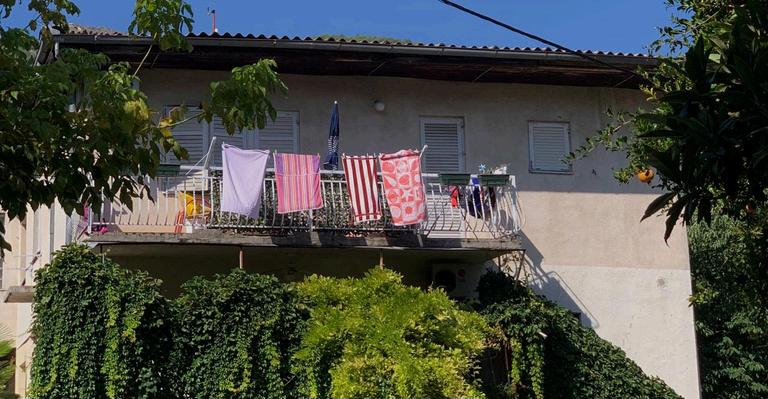
What if instead we became romantics, the kind that marvel at the view of a bridge, a low-hung moon? We might find certainty in romance, exclamation mark! The choir of mosques that serenades the city! The collective concern about one’s wet hair! Oh, Gimnazija, centre of the world, no wonder you are yellow like the sun! Do I sound certain yet?
To be or not to be a romantic, a realist, a graduate Truthfully, we don’t have a choice, the day will come along like any other, and some will cry and others won’t The world will not end with this journey, but many other things will You can make of that what you will
If you read this in hopes of answers, skipping over words, scanning for comfort, I must apologise for my lack thereof Admittedly I didn’t have a magic prescription to share, only a sentiment to extend To my dear co-years, I hope that in our last weeks here we can revel in all that Mostar means to us, appreciate each other for everything that makes us so very different, and call ourselves UWCers with sweet entitlement
And just like that, 3, 2, 1, “Congratulations”, we have graduated!
A Napping Culture
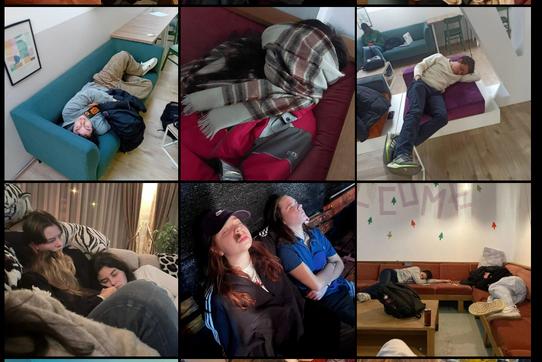

Many things are said about this beautiful dark twisted place better known as the United World College in Mostar We are the school of Kim Jong Un’s nephew and a very unique UWC in various aspects, including its truly open campus and its focus in bridge engineering We are also a stronghold of academic achievements and a powerhouse of innovation, with our dear Šantić residence having won an international prize of sustainability right at its opening
Right when I got in, in the now distant January 2023, all of these things surprised me Looking at the beautiful windows of Gimnazija from back home seems blinding for more reasons than its strident oranges: coming from a place where there is nothing to do, the sole idea of a place where everything is at the reach of your hand seems as scary as it is exciting
Fast forward to the end of August and I was there, in front of those doors that once were just pictures in the website of my National Committee Induction week felt exactly as I had jumped right into the world I once saw in Olivia’s videos and Keeping Up’s TikToks: everything was so perfect that I truly could not process everything happening around me
The new school emails, the phone calls from my family that could not pinpoint Mostar in a map and the endless new contacts on my WhatsApp Trying to learn the way to Novi without ending up in a shady football field, figuring out who is a second year and who is a firstie and finding my social space in between people coming from all corners of the world
It was too much And I was so into it
by PavlinaUWC Mostar seemed like a truly never-sleeping culture fueled by enthusiasm, idealism and passion that it had to be unreal The issue about stating that something cannot be real is that it just so happens that, most times, such a statement turns out to be true
My school email did not have my real name, some of my family members never understood exactly what Herzegovina is and, in the end, I did not add many people to my WhatsApp I still get lost sometimes when I walk to Novi, there are some second years I have never talked to and there are times where imagining a definite social circle seems as imaginary as a clean kitchen in Polonia
UWC Mostar turned out to have a sleepless culture, yet a napping one Even if our nights are sleepless and filled with study sessions and amazing conversations, our couches are the everyday venue for naps and our activities, oftentimes, feel like waking up from an unnecessarily long afternoon siesta
We are so focused on being sleepless that we forget that it is literally impossible You can, of course, skip a night’s sleep and go to school the next day: will you perform at the same level as someone who had a good rest? Even accounting for the efficiency of our good ol’ Hell energy drinks, it is impossible
And it is so deeply ingrained within us that we got used to it. The napping nature of our school culture can be seen in every stitch of the big fabric that holds us together: in every half-done CAS project, every lackluster essay that we submit and in all of the things that we can do better but we don’t have the energy to
Energy is such a powerful concept that it really defines everything around us in more than a physical way A sleepless culture has to be fueled by an unlimited source of energy that cannot be found in either enthusiasm, Fabrika iced coffees or Hell energy drinks
Granted: we can’t stop being addicted to the shindig of UWC Mostar Yet, is it true that we can’t stop if we need to go to Velić attic every free block to try and get some rest? I don’t think so We are always doing everything, but are we doing things the right way?
Maybe But just from the point of view of someone who just woke up from a nap by Elias
It’s just another walk

Community Commission
Every morning at 07:25, you cross the Bunur bridge feeling the fresh Mostar air, mesmerised by the morning sun casting shadows on the mountains in the distance Every evening, after long days, you walk down the streets of Mostar, gazing up at the lit up Millennium Cross and the street lights breaking the darkness of the night
On repeat every day, sometimes laughing with friends, others starting a new conversation, and sometimes spent reminiscing alone with your thoughts, the daily walks become part of your daily routine A part you enjoy, ten minutes at a time, always with something new to add to your day These walks become enjoyable as some days you walk down these streets, realising how grateful you are for everything around you, admiring the scenery every step of the way Nothing to be scared or worried about since it’s just another walk to school Just another walk back from the canteen Just a calming, relaxing, uneventful walk
But then, just as you’re enjoying another calming evening walk, in the span of thirty seconds your evening walk is no longer calming, and relaxing, and uneventful, and enjoyable The next day, another fourty seconds hit you again like a brick Leading to a week of no more evening walks, with one being the last for a while The third, knocks you off your feet You don’t want to walk to school, to the canteen, to the residence You don’t want to think, to sleep, to talk And why? Why so much drama? Why are you talking to the counselor, to the school, to the police? Why are you constantly thinking about those three walks?
And then you think And you realise What happened to the calming, relaxing, uneventful walks? What happened to admiring the views around you every step of the way? What happened to all the effortless conversations and time spent alone during these once enjoyable daily walks? And you tell yourself to look at the mesmerising views, and laugh with your friends, and think of how much you’re enjoying this walk Because it’s a calming, relaxing walk Because in the end it’s just a simple walk It’s just another walk One foot in front of the other and go
by DaniellaA spectre is haunting boredom and depression in UWC Mostar - the spectre of Community Commission All the powers, subjects and deadlines have entered into a holy alliance to exorcise this spectre: English and Self-taught, EEs and IAs, Winter check-in and trials period
Yet, spectres would not be able to shake up Pellegrino with our activities as much as we did Spectres could have been able to come up with costumes as scary as four Annas together, but they most certainly would not have been able to organize such a spicy hot noodle interresidential. Don’t tell this to anyone, but some say it was even spicier than a whole week of love letters and canteen decorations
Our wave of drive and passion resonated from the couches of Novi to the chairs of the canteen, as we puzzled everyone with quiz nights and tried to clean the turmeric after whatever Zaid did for the dress up as your EE day Talking of EEs, probably not even four thousand words would be able to sum up everything we did especially all the gossip after Winter Gala
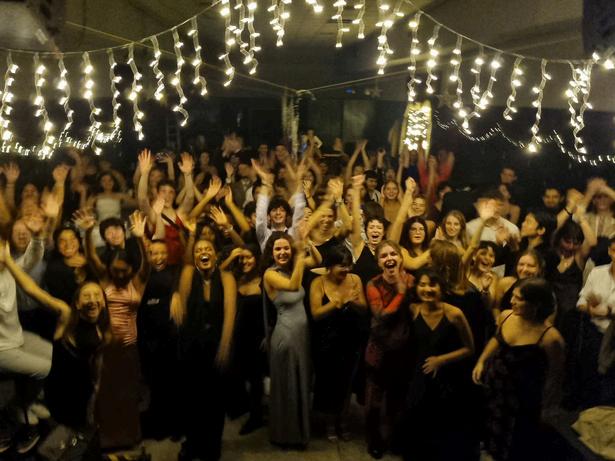
However, not everything was puzzling and staining Sometimes, we set up our chairs to weave dazzling bracelets or to write (hopefully) heartfelt appreciation letters that might or might not still be roaming around Santic common room Please, pick them up
Speaking of things that have not been picked up, we might as well refer to Pellegrino’s score in the most fabulous important competition amongst every Balkan UWC: the glorious and phenomenal Interresidentials!
From the Santic Boys fighting in Kantarevac and failing miserably, to Parth showing that he can also be the MVP of throwing hoops, going through Ljubica being volleyball’s new promise and making Novi look insanely ridiculous, we had some sweaty nights full of colors, chants and team switching
For more years of colorful emails and Starry Night aesthetic decorations, we are here for you Thank you for an amazing year and, remember this one’s not over yet!
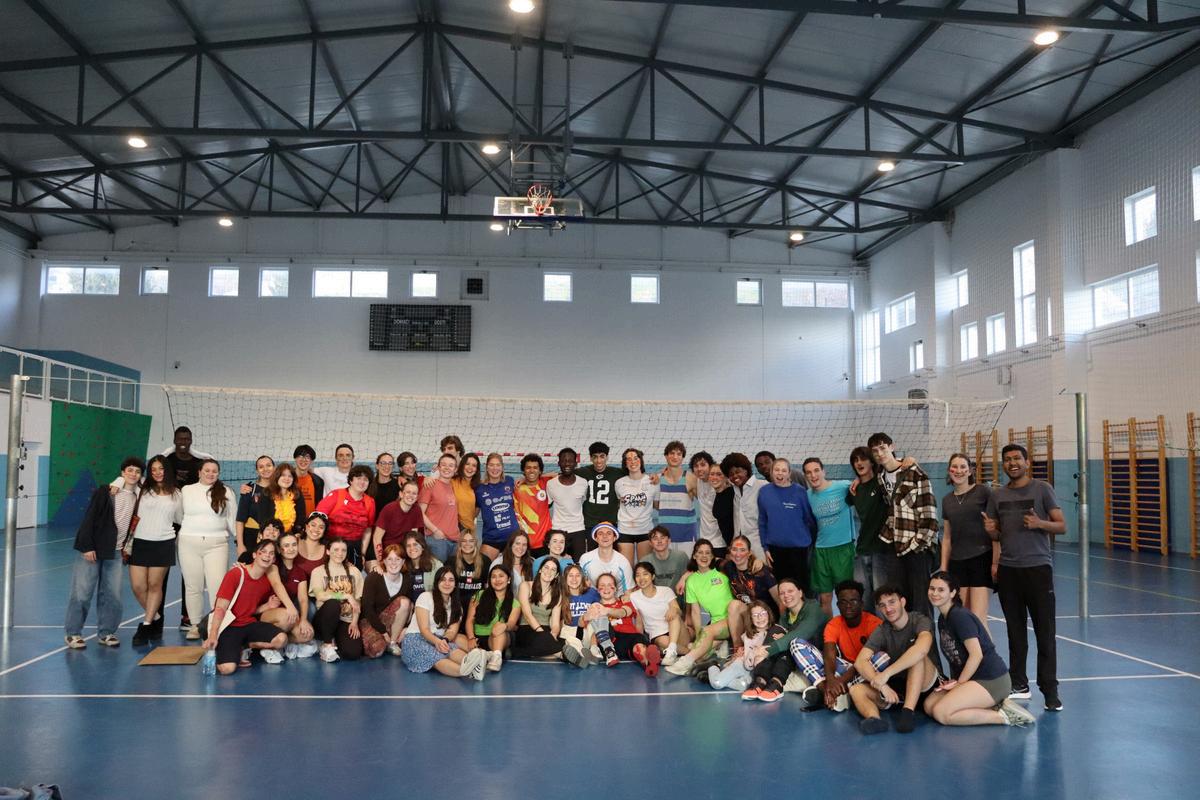
Kisses, besos, baci, φιλιά, beijos, ifẹnukonu, Küsse, kusjes, Pocałunki, Community Commission ‘23-‘24
byAnnaC andElias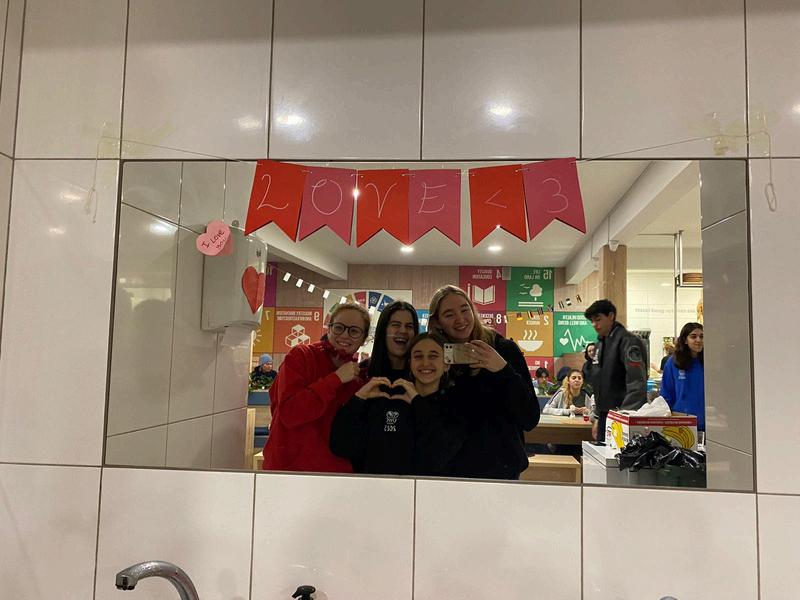
CensusandconsensusonbeingLatino
In 2020, when the USA carried out a national census, an unexpected spike in the number of Latinos/Hispanics was found It turned out that a coding error counted an extra 416,000 people in that category, well over the demographic predictions
The mistake? Almost half a million Brazilians marked themselves as both Latinx/Hispanic and Brazilian, which usually excludes them from the first group in the census, but fortunately revealed a rather meaningful dilemma
For the American government, people from my non-Spanish-speaking country were not part of the Hispanic culture and were thus automatically excluded by the algorithm
The reason? Without being able to even talk to Spanish speakers, it would make no sense to group us with them In fact, although a common misconception, Portuguese and Spanish are not interchangeable and their speakers can not understand each other naturally Then, noticing our Portuguese colonization, the American census saw no reason to put Brazilians in the same poll
I, for one, arrived at the Split Airport only to be greeted with ‘puñitos’ by Elías from Venezuela, thinking he was offering me something very different from a fist bump And then, stood quiet all the way in the van
Being the only Latino that does not speak Spanish in my generation sounded quite harsh back then, I confess Not knowing the lyrics of a single song they sang along to and fearing judgment if I asked for an English translation during a picnic seemed to be deal-breakers Maybe we just could not be together

The 2020 census was clearly incorrect, then, and the original exclusion should be kept to protect Brazilians like me from being mistaken, misunderstood and misplaced.
However, it is hard to believe that four hundred thousand people would be under a common delusion Also, one does not need to watch me closely to notice how much time I spend with other Latinos and, perhaps, even how I oftentimes am actually speaking in Spanish with them
A short-cut allows us to see a mistake in the form carried out by the US The problem is that the terms ‘Hispanic’ and ‘Latino’ are not direct synonyms The first refers to Spanish speaking people and the latter to those from Latin America – everything but the US and Canada So, Spain and Brazil can belong to one category each, while Colombia would be part of both
Consequently, the combination of both terms in a single option in the census, instead of expanding the category, restricted us from being Latinos as we are
Most importantly, however, there is a sense of personal belonging that eclipses any technicality and terminology, indescribably The problem in the survey in fact takes away from us the chance to laugh loudly together about our failing democracies, to dance together to a song with super problematic lyrics, and, specially, to text a friend cursing endlessly about our struggles, only to declare our love for them after
The so-called ‘Latinoamerican’ craving for love when everything around us is falling apart, is a force of energy, security, and friendship that I can feel tangibly, like a safety-net or a hug, beyond linguistic barriers
This connection that makes me unable to distance myself from them, more than anything, is the reason why I learned Spanish over the term Upon arriving here, I had nothing more than “Hola” and “Qué tal?” To be honest, it would be easy to say that I had prior interest, when, in reality, I sincerely despised this adorned version of my mother tongue: I decided to study German instead of Spanish when I had the chance back in Brazil
Surprisingly, these people proved me incorrect Just like all of the 416,000 Brazilians in the USA have come to realize, with their own friends wherever they are, that being born in or outside of Latino America, speaking whichever language, an active passion and understanding for these people and their stories is behind everything (Even with the Spanish, the Portuguese, or anyone )
A deliberate choice to be together and learn about each other, or not to, is what actually forms this family I so valuably appreciate It does not matter how terms, governments or algorithms may organize us, when we, as human beings, know damn well that love is the actual reason for integration
12 Hour Race
“Ohhh Your s&x is on fire!!” I don’t know what fired me up, nor where that energy had come from At the end of the 12 hour race, between turns of 10 minutes with Hashem (poor), Elías and I tried singing this anthem electrically - and somehow made Sonia clap, although she was quite disappointed at his scorn to his knee “Consumed,” I left the stage after another shameless bad vocal of a good song and ran for one last time My ankles were cracking, I could feel my calves burning, straightened, and my thighs begged me to sit back Yet, I was so happy, my smile was larger than my spiked hair I could feel my guts hurt, but I could not tell whether it was due to the cold and malnutrition, or my avalanche of emotions. The last minute was indescribable.
Half a day earlier, we had started our curfew-friendly version of an international movement called ‘24 Hour Race’ - a (literally) student-run campaign to end human traffick and modern slavery, in which teams of 4 or 5 runners take turns not only to complete the physical challenge but raise funds donated to a local human rights organization, Dignitet
However early we may have woken up, the organizers had much earlier started preparing the fundraising, the infrastructure behind Gimnazija, as well as a multitude of other events that happened throughout the day, like the Jam Session, to the best of my embarrassment To the luck of us all, though, the sky was blue and the sun was shining bright in the morning Everyone was excited; some of us were a little cold; a majority was studying Chemistry in the shadows As the sun warmed us and people got tired, the iconic Roko Damiani would not leave the track - he ran for 150 minutes straight - while someteams took turns of 30 or 15 minutes In the afternoon, some started walking, Hashem didn’t and fell in cramps Achille and I were just trying to sit down as much as possible I suppose the DJ was having fun and the jewelry making was definitely cozy Amidst a lot of stubbornness and a lot of impressive effort, the race finally came to an end “She is a runner, she is a track star” basically won every prize, which counts as a reminder to me that that song exists (I still voted for “Pringgo and the Eastern Block” for best name ) Regardless, applause to everyone that ran and thanks to the organizers It was noble, fun and memorable
by Gabriel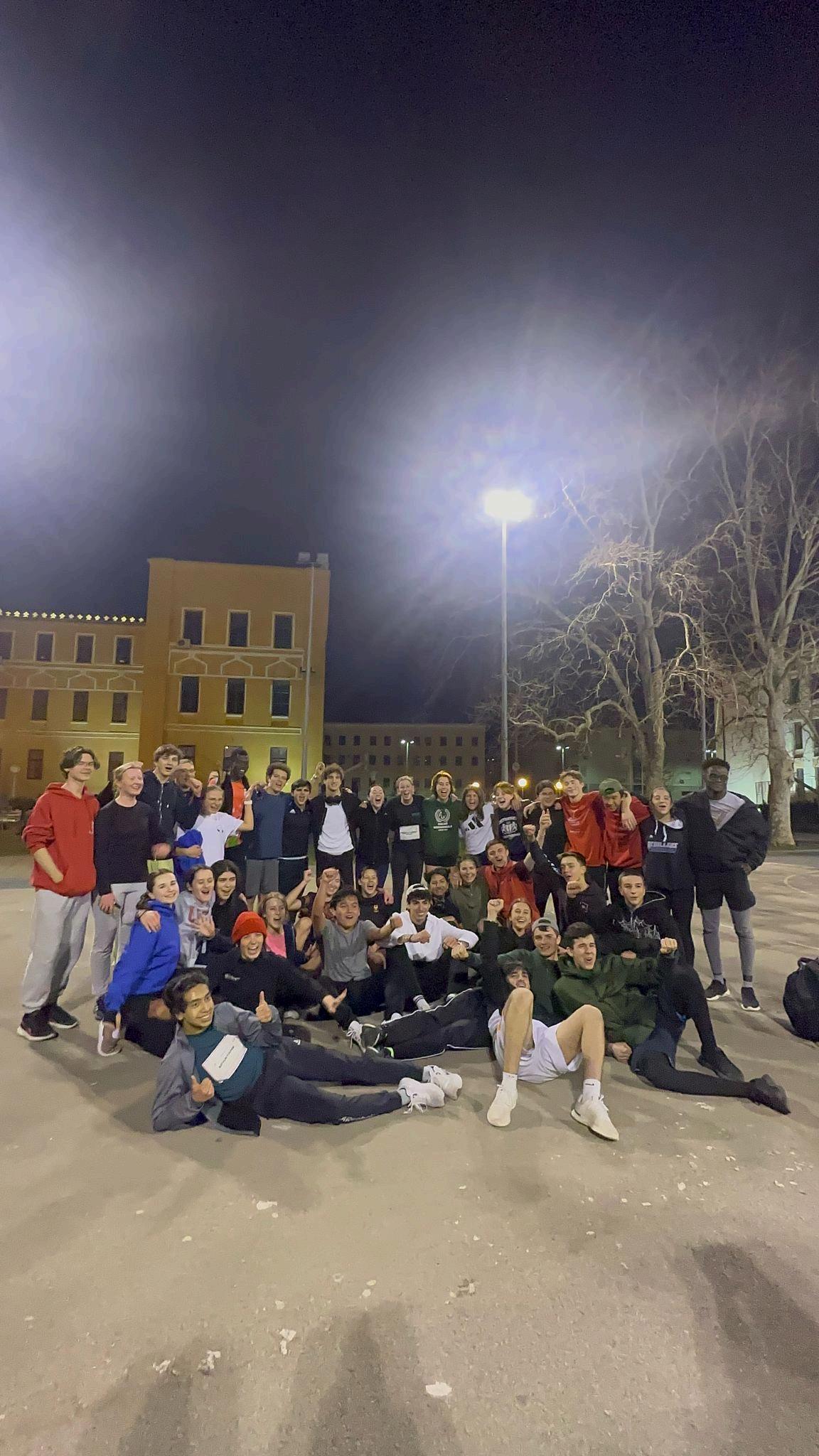 by Gabriel
by Gabriel
Local Recipes

Instructions:
by Melika Tufahije"Tufahije" (pronounced two-fah-he-yea) are an essential dessert in Bosnian cuisine, usually made around the Muslim holidays of Eid (also known as Bajram) and Ramadan This delicious treat is also popular in Bosnia and Herzegovina's neighboring countries like Macedonia and Serbia because they originate from the time of Ottoman rule in the ex-Yugoslav countries. For many, this dessert reminds them of home and the busy time around the holidays when the kitchen is flooded with scents of fruit, vanilla, and baked goods So, I bring you this recipe to try for yourself
Ingredients:
8 green apples (preferably Granny Smith or Golden Delicious)
300g (1 ½ cups) white sugar
100g walnuts, chopped finely
40g ( 2 tbsp) butter
60 ml + 100ml milk
2 vanilla sugar packets
1 lemon
1L water
1 whipping cream packet
(optional) a few cherries or additional crushed walnuts for decorating
Equipment:
Large pot
Small pot
Medium-sized deep baking tray
Knife or apple corer
Spatula or wooden spoon
Strainer spoon or other similar too
Wash and peel your apples, keep the peels for later Core out the middle from the stem, don't go all the way to the bottom Cut out the small brown bottom
Don’t make large cracks in the apple because it may fall apart later Place peeled apples in a pot with enough cold water to cover them and juice half a lemon into the water to keep the apples from turning brown.
Next, boil 1 liter of water in a large pot on high heat with 100g (½ cup) sugar When sugar water starts bubbling add in your apples and lower heat a bit Move them around with a wooden spoon and ensure they're covered in the sugar water Boil them for around 5 minutes, or until they are soft enough to poke through with a fork. Once soft, take them out of the sugar water with a strainer spoon or regular spoon, making sure to drain the liquid out. Place the apples in a deep baking tray carved hole side up
In the remaining sugar water, add 200g (1 cup) sugar Add in your apple peels from earlier and half a sliced lemon Boil it down until the water has turned into a syrup and take out the peels and lemon (you have made "agda") This may take some time, so move on to the next step while the water slowly evaporates
Add your butter in a separate small pot and melt it on medium heat Toss in finely chopped walnuts, 60ml milk, and 2 vanilla sugar packets Stir until it thickens up, then take off the heat
Assemble by pouring your walnut mixture into the carved holes of the apples until full Once filled, bake the apples in the oven at 180°C for 15 minutes
Once baked, take them out and pour your sugar syrup over them while they are hot Slowly pour over them at first, then you can pour in the rest around them so they "float" in the syrup Place the tray in the fridge and cool for around 2 hours
Whip your whipping cream with 100ml milk When you plate your tufahija, add on the whipped cream and if you wish, decorate with more crushed walnuts or a cherry Enjoy!
Additional tips:
I strongly advise using green apples because they are softer and have a lower water content than red apples, making the green ones less likely to fall apart during boiling
Fun fact, the pectin in the apple peels combined with the high sugar content of the apple water is what makes it thicker and syrupy!
If you’re not a fan of very sweet desserts, I recommend just adding less sugar (50g in initial sugar water, 150g in the syrup)
If an apple does fall apart, try to make it into a half-apple cut vertically and fill and bake according to instructions, don’t waste!
Hurmašice
Another staple recipe in Bosnian cuisine that I dearly treasure and love seeing when I go to relatives' houses during the holidays are hurmačice (pronounced hur-mah-she-tsey) This decadent dessert is one of my top 3, which is quite high praise I hope you enjoy the process of making them!
Ingredients:
450g (3 cups) flour
250g (1 cup + 2tbsp) room temp butter
100g (½ cup) + 600g (3 cups) sugar
100g (1 cup) coconut flour
1 tbsp baking powder
2 eggs (optional) 50g walnuts
A few lemon slices
500 ml (2 cups) water
Instructions:
Equipment:
Electric mixer
Bowl
Large and deep baking tray
Wooden spoon
Grater
Large pot

In a bowl, beat butter and (100g) sugar together with an electric mixer until well combined Add in eggs and combine well Toss in the coconut flour and baking powder and mix with a wooden spoon Slowly add in flour until fully incorporated You may need to use your hands for this
From this dough, make golfball-sized balls In this stage, you can add a whole walnut into the center before shaping it, I personally don’t add them Make them into rectangular shapes, and to give them the iconic dimpled look, press one side into the fine grate side of a grater, then place the dough into your unoiled baking tray dimpled side up Do this with the rest of the dough, placing the hurmašice right up against each other Bake at 180°C for approximately 20 minutes, or until slightly golden around the edges. While they bake, prepare the sweet syrup Add your 600g of sugar and 500ml of water into a pot Bring to a boil and then lower to medium and let simmer for around 15 minutes until syrupy, adding the lemon slices around the end of the cooking time Pour the hot syrup on slightly cooled hurmašice, then wait a few hours for the syrup to absorb. Enjoy!
Additional tips:
If your dough is not sticking together, you added in too much flour. Add in some melted butter or a splash of milk.
If your dough is sticking to your hand, it’s to wet Add in a bit more flour until it can form a ball that doesn’t feel too sticky
PolicebrutalityinItaly
This article goes to the memory of Carlo Giuliani and Stefano Cucchi, innocent victims ofsystematicviolenceandofanegligentState
Brief Introduction to the Historical Context and the Connotations of Police BrutalityinItaly
Italian contemporary history is not estranged from the phenomenon of police brutality and abuse of power employed by armed forces on civilians While its role is not major in the eyes of the average citizen, it is one of the frontline political issues affecting the country, and given its longevity and the lack of condemnation of it, its presence is explanatory of both the societal organization and the established social contract of Italy As police brutality has existed in multiple formats during Italian history, it has been a clear representative of law enforcement under the guidance of different governments, and variouseconomicandsocialcontexts
To expand on this, it must be known that policebrutalityinItalytakesactintwomain different conformations The first one consists of violence against demonstrating masses, made of protestors or advocates, historically known to be formed in the major part by factory workers, high school oruniversitystudents,andNGOvolunteers; a form of constraint usually aimed at repressing, undermining and demoralizing or frightening the demonstrators into dropping their ideals and ideas. It is meant to send a political message of suppression of the right to freedom of opinion, every time with a specific target to silence, and it inevitably demonstrates every time the political agenda the police force stands for, usually in the name of directives coming from the vertex of political power: the democraticallyelectedgovernment

TheBattleofValleGiulia oneofthemostviolentandthelargestencounterof universitystudentswithpoliceforces,1968
Thesecondoneinstead,consistsofanolder form of police brutality, that targets marginalized, less privileged social classes to submit them to disrespectful and inhumanetreatment:victimsofthisformof abuse, which has been frequently happening in recent years, are usually foreign immigrants, drug addict and in general troubled young adults Historically, it also aimed to target prostitutes, people with disabilities and mental illnesses, homeless people, and unemployed young men It is clear that this form of violence is strongly radicated in racism and ableism, but in particular in classism, which the Italian societal tissue is drenched in; for this reason, the right-wing, industrial ruling class (the predominant one in the country since the fall of the Fascist regime) not only condones the cruel treatments that the systematic violence brings, but also encourages them as a strategy to protect their elitist lives from the so-called “dangerousclasses”
Historical Digression: from Post-Fascist ItalyUntil2024
In post-fascist Italy, police brutality rates picked up, in complete disregard of the freshlybornparliamentarydemocracy
They had a focus on suppressing demonstrations,protests,andtheactionsof sociopolitical activists demanding social and economic welfare, but also on cracking down on striking workers demanding better wages and labour rights, exposing the political agenda of the right-wing governments and the interests of the entrepreneurial, landlord bourgeois members who were participating in the economicgovernanceofthecountry
Following these events, police brutality became the normal procedure for handling uprisings and protests in the '60s, and the ‘70s, even resulting in fatalities or almost lethal acts of violence against, in particular, students and left-wing political activists who were specifically targeted to dismantle the civil unrest and to discourage the active dissentthroughthepopulation Atthesame time, the police were the tool utilized by the government to provide anti-terroristic measures and investigations, which often resulted in psychological and physical torture aimed at extortion of, in all effects, prisoners of the armed forces The torture would happen in secret, in the basement or cells of police offices and stations, and the officers responsible for it would undergo minimal to no repercussions: the judiciary system functioning as an accomplice in burying the events away from the public’s knowledge After the late ‘70s, regulations were implemented to regulate the independence of the decision-making of the police force, demilitarizingtheagentsandadjustinglaws to persevere more seriously the instances of power abuse Nevertheless, the use of torture in secret was still a widespread tactic in the fight against terrorism, and even the mafia Following the end of thetense years of political and societal distress, the major event in Italian contemporary memory is the so-called “G8 di Genova”, remembered as a terrible weekend in July 2001 in the city of Genoa where pacific protesters were victims of brutal violence, beatings, humiliations and even killing Behind the ferocious attacks of the police on civilians, there were conspiracies and schemes, which had carefully placed police forces so that escalation of tensions could not be prevented, that were articulated by the head of the government himself, Silvio Berlusconi, who aimed to make the experience for the demonstrators a tragic and frightening hell, to scare them into abandoning all refusal and disapprovals for the G8 conference The tragic events shook the nation, but not enough to recognize the systematic nature of the problem, and its fundamental upholders: the state and the governmentthemselves

After the year 2000, the modus operandi of police brutality retraced fairly accurately the one of the late 1800s, conveying violence and injustices towards minorities, the so-called “dangerous classes”, aimed at reinforcing the marginalization of said people, in the name of “class and social security” Police brutality has turned to drugaddicts,immigrants,peoplewith
disabilities and mental illnesses, and young adults suspected of being affiliated with the mafia or drug cartels The dynamic stays consistent in every occurrence of abuse: hidden away, in the police quarters or in abandoned streets and buildings, brutaland sometimes lethal - beatings are carried out, and the victim is then left for an entire night or even multiple days to suffer in atrocious pains, without medical help being called The key part of this form of violence is the remoteness and secrecy that shields justice from investigating it and making the correct condemnations, which eventually prevents an already skeptical, even corrupt, judicial system from appointing a fair and justtrial.
In the most recent times, this phenomenon of obstinacy to persecute people in unstable and fragile social conditions has shown itself through acts of violence against inmates and prisoners during the COVID19 years The life conditions in Italian prisons are low, mostly conditioned by the overpopulation and scarce hygiene With the command of applying restrictions to life in prison in 2020, inmates expressed their discontentbyroaminginthespacesattheir disposition, demonstrating to get more human treatment: the answer of armed forces was disproportionate and dehumanizing, resulting in thirteen deaths and humiliating, indiscriminate and beastly beatingsinsideprisons

On the other hand, another phenomenon that has struck Italy recently, is the violent repressionorrageattacksagainstprotestors and demonstrators, mostly high school and university students, in public places, streets, and squares, who oppose the government or its decision-making In particular, the attacks have been as violent as to produce severe physical injuries and no member of the government has spoken out showing interest to bringing a brim of justice to these situations, while instead preferring to remain silent about the events or side with the perpetrators of violence, advocating for the protection of those who “keep society in order”. This is an effective deprivation of the right to freedom of expression, and free association, both granted in the Italian constitution
How Police Brutality Remains Unnoticed andUnpunished
The police have always remained, and as of today remain, unpunished for their actions, abuse, and employment of brute force, both by the judiciary system, which is backed up by the State itself, which defends their cause in the name of the enforcement of the law on regular citizens, and by the social contract, which in Italy relies on classist and elitist beliefs and social norms, therefore accepting the usage of violence against less privileged people or innovative people as a meanofmaintainingsocietalorder
After the fall of the Fascist regime, Italy’s governments have historically been led by US-approved right-wing leaders, who pressured the country into moving under the capitalist sphere of control without remorses or compromisers with those who opposedtheidea.Forthatreason,left-wing
opposers of those policies and transitionswere subjected to and still today are victimized by the oppressive, usually reactionary mentality of Italian possessors of power, who unleash political violence carried out by the police as a containment move for the demand for change and opportunity The conservative mentality of politicians in Italy is thus protected by thepower of intimidation and the brute forceofthearmedcorps
At the same time, the Italian public carries on with their daily living unbeknownst, or maybe as willingly ignorant, of these brutal events, which never manage to shake the conscience of people to the length of the mass asking for justice: only in isolated cases, such as the brutal, unjust murder of Stefano Cucchi in 2009, individuals, such as Stefano’s sister, Ilaria, stand up in front of the Italian laws and courts to bring lights about these abuses and cruelties, often hindered by skeptical judgments and unwilling courts The elitist mentality manages to penetrate all social classes, who find themselves in an imaginary struggle against the even lower social classes, thus finding legitimacy in the police’s action, leading them to not condemn or disapprove of systematic violence against those who they believe to be perils for their social statusandwealth

On the other hand, the Italian public, mostly made of old, conservative reactionary people, ideas, and mentalities, does not recognize the legitimacy of the demand for change, particularly, if effected through the conformation of demonstration of protests Moreover, the mentality of the old village which adheres to and honors traditions, pervasive in Italian culture since the fall of the Roman Empire, effectively and entirely undermines the possibility of change as a societal or economic transition, leading to the overall thinking of the repression of demonstrations and protests to be a positivelyreassuringevent
ConclusiveRemarks
While Italy may maybe best known for its chaotic and corrupted political scene, the extent of the gravity of systematic police brutality is not recognized, neither domestically nor abroad The lack of condemnation of police violence acts fuels a tense atmosphere of social injustice, which goes strengthening by the day And while the government or the most prominent political actors choose to ignore this reality, with daily occurrences people are personally victimized by police officers without any regard for the protection of rights granted to citizens by the Italian Constitution Light and justice need to be broughttotheepisodesofviolenceandtheir motives, to investigate and bring awareness of the different cases, to highlight the usefulness of systematic violence in resolving and tackling societal discomfort, so that police brutality can be eradicated fromdemocraciesasa“toolofregulation”
Summer mixtape
6 songs guaranteed to bring back warm, nostalgic, summer nights

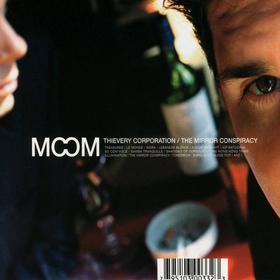





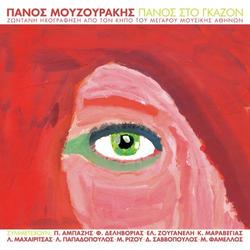






On doing more things I’m not good at
I barely ran the half marathon, and I am glad I did it
Scan for the complete playlist!
by AndreaI wonder what made me sign up to run a half marathon, something so distant from my comfortable know-how zone Even more, I’m not what you’d call a ‘fit’ person Throughout my first 5 years of middle school, I tried and changed 6 different sports and physical activities, from hip-hop dance to tennis, to ballet, and back to basketball Maybe I decided to run to impress my parents, myself, or the distant relatives who would make bitter jokes at family gatherings on how I did not inherit any of the good athletic genes
The most preparation I had done was a little less than 8 kilometers in one hour, yet a few minutes before starting the half marathon I felt so excited and alive I don’t know how my endorphin levels were so high when just a few days prior I stressed about not running within the time limit and turning myself to ridicule
The first ten kilometers were hard The next ten were even harder Somehow, under the strong Mostarian sun, all sweaty and exhausted, I managed to crawl my way to the finish line 3 minutes before the marathon ended
I did it! I was one of the last people from the school to finish it – and arguably one of the slowest ones – but it doesn’t matter, because I did it! And it would not matter if I crossed the finish line after the 3-hour mark Laying on the ground with my arms open wide, I realized what matters is how I put myself in a situation to do something I suck at This marks for me fighting the flawed and overflown meritocratic ideal – perfectionism
We have a dangerous obsession with growth, and our contentment is increasingly overdependent on our economic contributions, numbers, and statuses Anthropologist James Suzman in his book Affluence without Abundance writes about the Ju/'hoansi bushmen in southern Africa Though it focuses on the working culture in the industrialized world in comparison to the African tribes, the core of it deals with our perfectionism cultivated in the capitalist system: “Capital-driven prosperity leaves little room for whimsical alternatives”
Starting from our UWC community, I have started to notice the ways people approach hobbies and interests We have adopted this problematic nature to quantify achievements and results, to tick a box at the end of a task Running a half marathon was not enough unless I finished at a certain pace, at a certain moment It’s not our fault – self-growth is presented as an ever-increasing curve on a graph But is it even possible to grow to infinity? And even further, why should we measure ourselves with a diagram when we are not something to quantify? Our complex and multifaceted nature as humans does not allow us to be good at everything, and we must not be good at everything If that were the case, life wouldn’t be fun
In this late stage of capitalism, the most revolutionary thing I have done is accept that I will not be the best at the things I enjoy Don’t get me wrong – I am not preaching to be lazy and average There are some things I am passionate about, will pursue to study them at university, and will work towards growth But for some things, I will refuse to fall under the perfectionist scheme The backbone of the capitalist neoliberal market is competition and I won’t compete Even though I crossed the finish line 3 minutes before the limit, ran with a slow pace of 8:34 min/km, and looked drenched like a tomato – I had fun Refusing to give in to the capital-driven prosperity, I proved to myself it is okay to suck at things and still do them
Whispers of Wisdom: Embracing the Unexpected Virtues and Surprising Values of Gossip
When we think of gossip, we are quick to associate it with meanness, maliciousness or insolence “I don’t gossip” seems to be our favourite phrase when attempting to appear morally superior Somewhere along the line, even though we can’t tell exactly when, we decided that gossip is immoral However, when not used for a harmful, untruthful and malevolent cause, gossip is often used to share information, catch up on social events, hear about the well-being of acquaintances' family and friends, share ideas that might not be accepted in the wider community or just keep up with the latest happenings in one’s social circle Despite the fact that all of us engage in gossip at least semi-regularly, it is still viewed as an unethical activity and gossipers are perceived as untrustworthy people. Still, what we fail to see is the real importance of gossip, which is rooted in its deep history
The word “gossip” originally comes from the 12th century noun “godsibb”, meaning godparent or women’s companion during childbirth[1] As time passed, the word slowly evolved and became a verb used to describe “friendship meetings”[2] These were private conversations amongst friends gathered for dinner or tea, and the topics would range from marital problems to the current political or social events In this environment people had the freedom to share their opinions, voice their worries and ask for advice or help when needed The practice was common and widely accepted, but then, it became the hobby of women
In the medieval times women were not allowed employment, had very few rights and thus no influence in society In turn, the women’s gossip quickly acquired the reputation of an unimportant and shameful activity Contrastingly, men had the privilege of gossiping in private, on their workplaces or during the free time which they got to spend with their friends while their wives were busy taking care of the children and the household The female gossip was deemed inappropriate and sinful, while the male gossip was considered insightful and valuable Men were bringing up new and important information; women were simply wasting their time being too nosy
As gossip started to develop these negative connotations, women who indulged in the activity soon became synonymous with evil witches Society developed a fear of women gathering and sharing information in such a way, and there was an underlying assumption that, if women have these communities, known as the “witch cults”, they could one day turn their backs on society Consequently, women who were caught or suspected to take part in gossip were labelled as witches, accused of harming society and punished accordingly
[1] god-sib godsib god-sibbe and godsibbe - Middle English Compendium https://quod lib umich edu/m/middle-english-dictionary/dictionary/MED18998 Accessed 11 March 2024
[2] Garofalo, Shae The History of Gossip – The Legend The Legend, 30 March 2022, https://apsnews org/1089/entertainment/the-history-of-gossip/ Accessed 11 March 2024
Bookclub recomends:
Norwegian Wood by Haruki
Murakami
The very beginnings of gossip were clearly not those with bad connotations, but only when the term became so closely tied to femininity did it become frowned upon What society failed and still fails to see is the importance and power of female friendships Gossip has the ability to connect women, allowing us to learn from each other’s mistakes, celebrate each other’s successes, help each other if needed, and, most importantly, create special kinds of relationships which cannot be matched in any other way
Studies have been done on gossiping, and the real value of it seems to be a topic of never-ending debates However, a study done and published by researchers at Stanford University and the University of Maryland in February 2024, found that the average person spends an hour a day talking about others Furthermore, they found that gossip can “bond large groups of people and foster cooperation”[3], which are qualities that are known to be extremely beneficial in social situations
Matthew Feinberg, one of the co-authors of a study done in 2014 by researchers from Stanford University and the University of California, says that “groups that allow themselves to gossip sustain cooperation and deter selfishness better than those that don’t” and adds that, while this behaviour can be misused, it also serves a very important function for groups and society[4]
Regardless of how we view gossip or how harmful we might think it is, it is absolutely unfounded to argue that it has no benefits Apart from the aforementioned, gossip is also a handy tool which can get us out of awkward social interactions Every so often meeting someone new, seeing an old friend, accidentally being left alone with a friend of a friend or a friend’s partner is anxiety-inducing and can easily become an extremely awkward situation A chat about the weather is sometimes simply not enough, and gossip is a useful trick to keep up your sleeve
It is time to put down the superiority complex and understand the true meaning and purpose of conversations which can improve our social relations
Author’s note: Nothing can excuse the use of our gossiping habits to spread untruthful rumours as an attempt to harm another person or impact their reputation negatively The kind of gossip referred to in this article includes only the harmless storytelling and exchanges in which we take part every day, be it in the canteen during meals, between classes or during the time that we are supposed to dedicate to studying This article serves the purpose of poking a joke at claims that the author’s only personality trait is to gossip, and furthermore disarming the accusations of ethical and moral corruption If the reader finds themself troubled with any implications or explicit claims made in this article, the reader’s concern is duly noted and the reader is free to live with negative thoughts
by Maja M[3] Nunez Emily C and Valerie Morgan “Cant Stand Gossip? Lets Talk New Research Suggests ” Maryland Today 22 February 2024 https://today umd edu/cant-stand-gossip-lets-talk-new-research-suggests Accessed 11 March 2024
[4] Parker, Clifton B , and Robb Willer Research: The Hidden Benefits of Gossip and Ostracism Stanford Graduate School of Business, https://www gsb stanford edu/insights/research-hidden-benefits-gossip-ostracism Accessed 11 March 2024
Norwegian Wood by Haruki Murakami recalls Toru Watanabe first love, a time filled with awkwardness, uneasy friendship, loss and desire Set against the back drop of 1970s Tokyo the novel drifts through Turo life's feelings as he navigates the complexity of human connection and grappels between his past or the future Murakami's writing is reminiscent and thoughtful, bringing the reader through the emotional and psychological aspects of intimacy with a caring touch Through subtle character development 'norweigen wood' reflects on the nature of love and the nuance of human hearts making it a captivating read for a summer day in the park by Ash
Have fun at university (but not too much fun)
I love you guys so much and it is sad that you will leave so soon, but I believe in every single one of you and have fun at uni

Thank you guys for being the better half of our experience at UWCiM! Hope to see you again!
Wish you all the best in life, keep chasing your dreams
Be sure that you left your mark here, because I am sure you will do the same wherever you go :)
Messages for our Second Years...
Dear second years, thank you for showing us all the beautiful and ugly parts of life in Mostar Thank you for guiding us, and being here for is when we needed it. I dont know what i will do without you guys. I will miss you so so much!!!!!!!!
I hope you had a nice time here :)
Thank you for always being there when we needed you
humble yourself and get ready for 100 new faces to take over
I hope UWC was what you imagined it to be
I could not have survived this year without you and so many of you are so important in my life and it hurts me to think of you leaving But I also know that more people will get to know you and be able to brighten up their days as well
Thanks for your energy and love kids <3
Make the most of your time here, it will pass by very fast and feel grateful every single day of the beautiful opportunity that we got the chance to live
F*ck what others say in the community and do whatever you feel it's right and makes you happy.
Messages for our Firsties...
We will miss you SO much but you are gonna be more than fine. You are all incredible human being. Do not forget! Love and enjoy every moment because time passes so quickly you won't even notice it
you guys are kind of cool i guess xoxo
UWC International Congress Echoes of the Global Community
This year, UWC has prepared something extraordinary, unprecedented, and long-awaitedan event that brought together 450 participants, 18 colleges from all parts of the world, incredible stories, and a mission for everyone: "Education as a force" This event served as the pinnacle of the celebration of the 60th anniversary of UWC, held as part of the International UWC Congress in Thailand (Phuket)
The event brought together UWC's educational and governance leaders alongside partners, supporters, and representatives of all UWC stakeholder groups, to engage in discussions regarding the future of education and the realignment of our educational model to address the greatest needs of our time
Through a combination of keynote sessions, panel discussions, workshops, and impact talks, participants worked to re-energize our mission, envisioning education as a force capable of uniting people, nations, and cultures for peace and a sustainable future
The congress presented an incredible opportunity for learning, growth, and the promotion of the work of each of the 18 colleges
Remember it is really more about learning than the score you get
Say yes more frequently Yes to the coffee you are too lazy to grab, the concert you are too tired for, the spontaneous climb up to Fortica You won't regret your grades, you'll regret not spending time with people! Enjoy your summer and second year my firsties :)
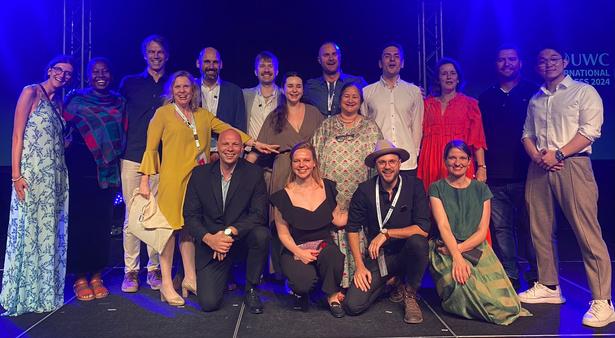
UWC Mostar delegates showcased Peace Conference project held during this academic year and had the opportunity to participate in the establishment of an international student group, whose activities will be further elaborated upon
Additionally, delegates collaborated with UWC Dilijan in establishing a partnership during a workshop on mental health Throughout a month-long preparation period, the workshop yielded previously unexplored data on student health, which will be further analyzed in the subsequent period
The message conveyed from the congress, pertaining to the ever-evolving pace of global change and the pivotal role UWC plays within it, states: "I believe we are faced with a significant challenge and an opportunity to re-imagine the impact that UWCs can exert, and as a global community, what collective actions we can undertake in shaping the world around us " - Faith Abiodun by Ishak
Mate Un pequeño escrito sobre mi cultura,

“Mate" is a vessel in which the homonymous infusion is prepared, steeped in tradition among the Guarani people and widely embraced in Argentina My grandmother gifted me my first “mate” at the age of 15, crafted from braided rawhide and steel, the very one I use today “Mate” symbolizes love and companionship, shared with friends, family, and even strangers Seated in a circle, the infusion of hot water and "yerba mate" passes from hand to hand, creating a feeling of warmth and support Personally, “mate” reminds me of my roots and represents the ideals of hospitality and openness, welcoming others with a warm beverage and engaging in heartfelt conversations
by AlvaroBald for what cause?
Students from United World College in Mostar are gearing up for a special event: Bald for a Cause. With a heart full of compassion, the students are rallying behind two organizations, “Novi Pogled” and “Srce za Djecu”
The air was charged with emotion on Saturday, the 23rd of March 2024, as students from United World College in Mostar gathered in Velić Garden for a truly remarkable event: Bald for a Cause Their hearts brimming with compassion, they stood united in support of two organizations, "Novi Pogled" and "Srce za Djecu"
For many, the decision to part with their hair was not an easy one Yet, amidst tears and mixed emotions, a sense of solidarity and purpose emerged "It felt like being high on life," shared one student who, swept up in the moment, decided to shave their head right then and there, without prior planning
Jaz Zacks, one of the key organizers who also bravely went bald, recounted the vision behind the event: "We wanted it to be more than just shaving heads We wanted to create an atmosphere where students could come together, have fun, enjoy music, and support each other "
It's amazing to see that around fifty students from UWC Mostar donated their hair to the 'Srce za Djecu' foundation in Sarajevo, which will transform it into beautiful wigs Moreover, the funds raised through platforms like 'Go Get Funding' will help support the important work of the 'Novi Pogled' association Since 2003, 'Novi Pogled' has been providing psychological support to women with breast cancer and their families in the Herzegovina region They offer education and various forms of assistance to protect the physical and mental well-being of those affected by this devastating disease These organizations are a lifeline for the brave souls battling cancer in Mostar and beyond The students of UWC Mostar are making a difference through their generous donations of funds and hair
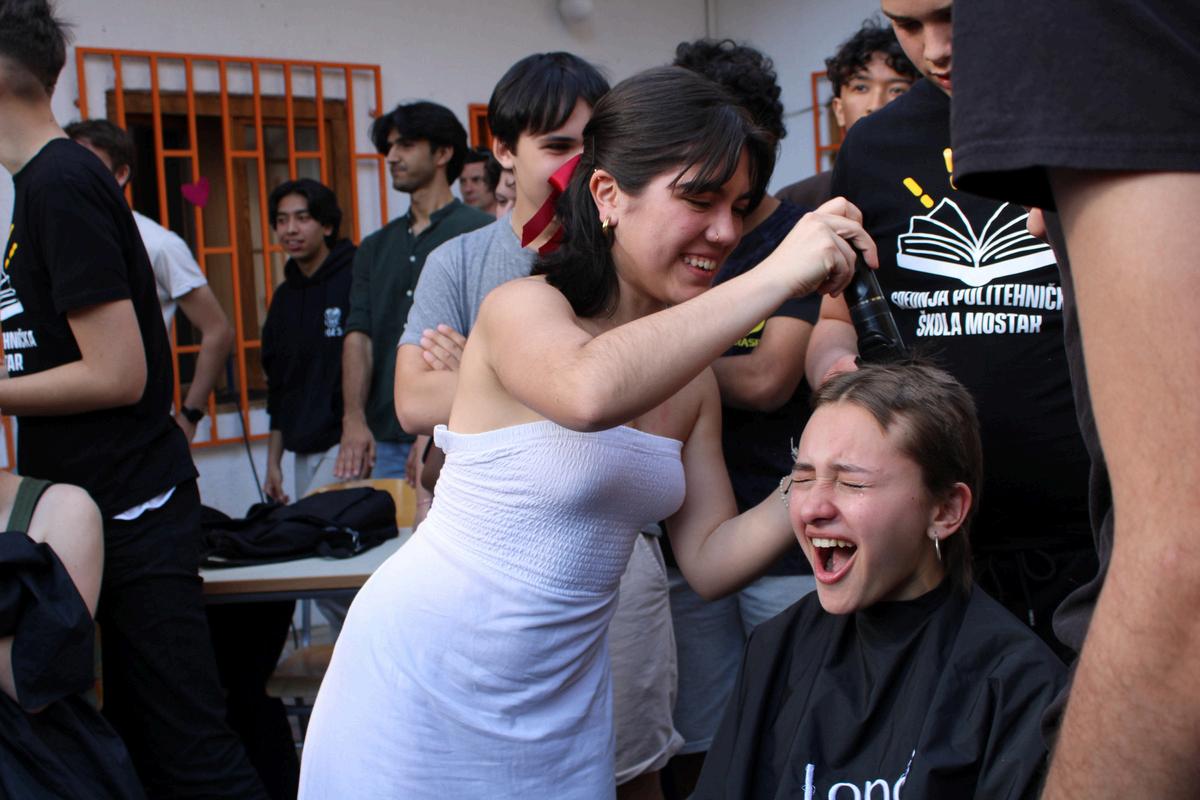


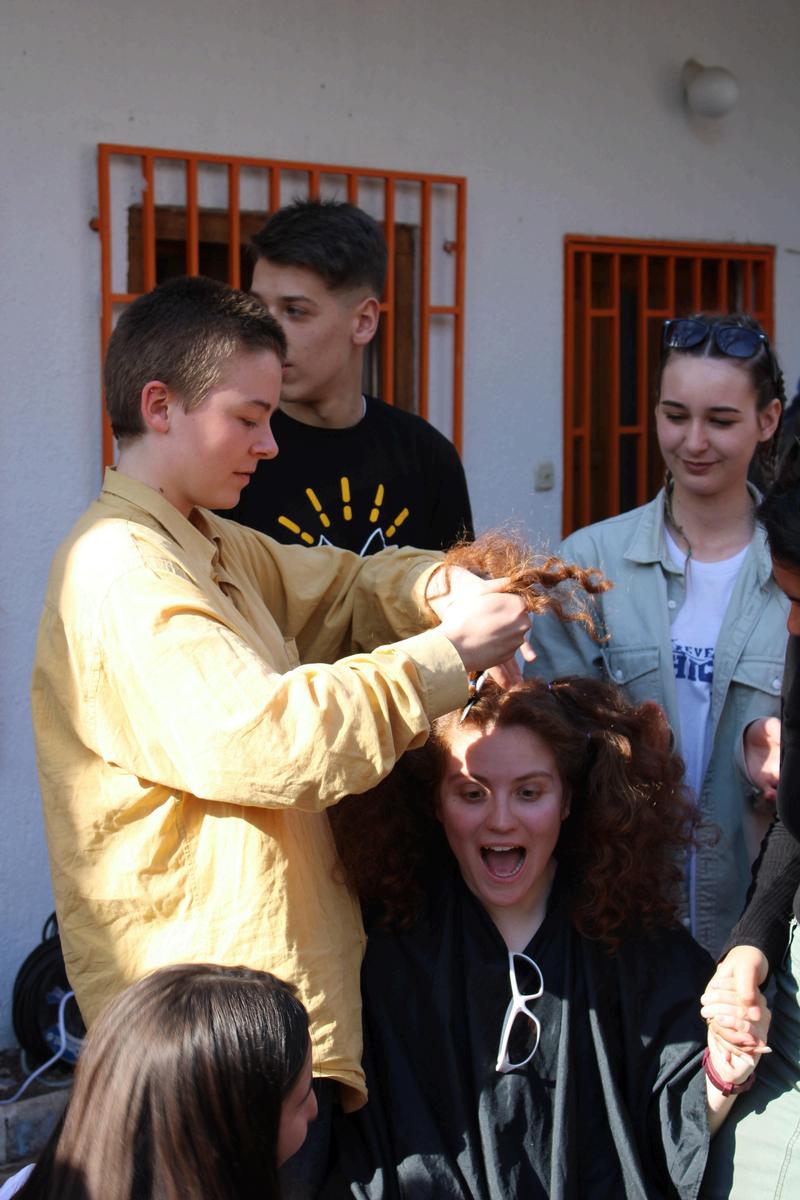
The driving force behind this event was the "Gen Z" CAS, comprising Jaz Zacks, Alvaro Micocci, August Blais, and Nell Joséphine Mouyelo-Katoula, whose tireless efforts ensured its success.
Bald for a Cause serves as a reminder of the power of unity and compassion in a world often plagued by division and strife Each strand of hair symbolizes a physical sacrifice and an act of solidarity with those facing unimaginable challenges This act shows beauty, resilience, and hope for a brighter tomorrow
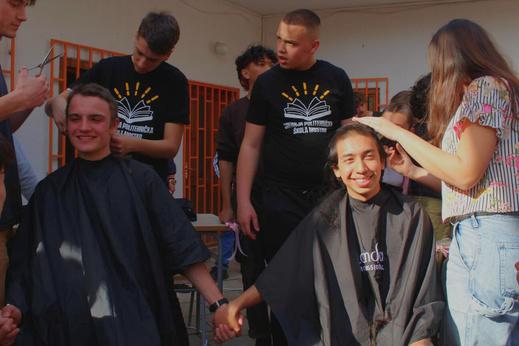
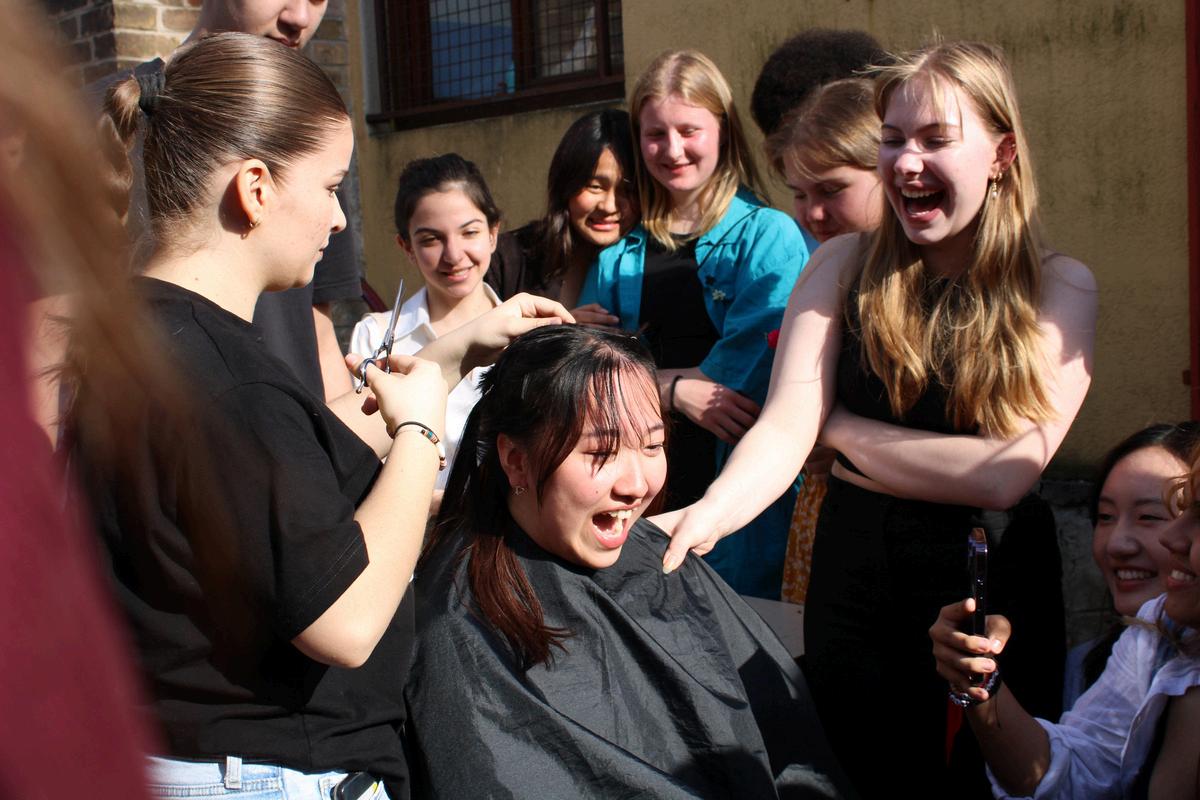


FILM CAS RECCOMMENDS...
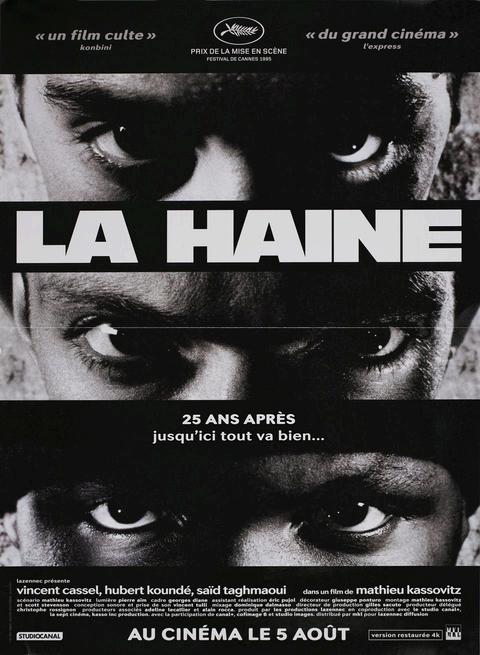

“La Haine” is a soul touching French drama directed by Mathieu Kassovitz, set in the Parisian suburbs It follows 24 hours of the lives of three friends from different backgrounds dealing with conflict with authorities after a violent riot It’s a must-watch for its brilliant storytelling and social relevance
"The Love Witch" is a sensuous tribute to Technicolor thrillers from the 1960s It is set in the present day and centers on Elaine, a seductive witch on a magical quest for love Humor, horror, and feminist commentary are interwoven in the picture as her enchantments spiral out of control A compelling film that you should not miss

Hayao Miyazaki's "Howl's Moving Castle" is a captivating animated film It is set in a magical realm and centers on Sophie, a young woman who was cursed by a witch and runs away to the wizard Howl's enigmatic shifting castle This captivating story of self-discovery, magic, and love is a summertime must-watch!
